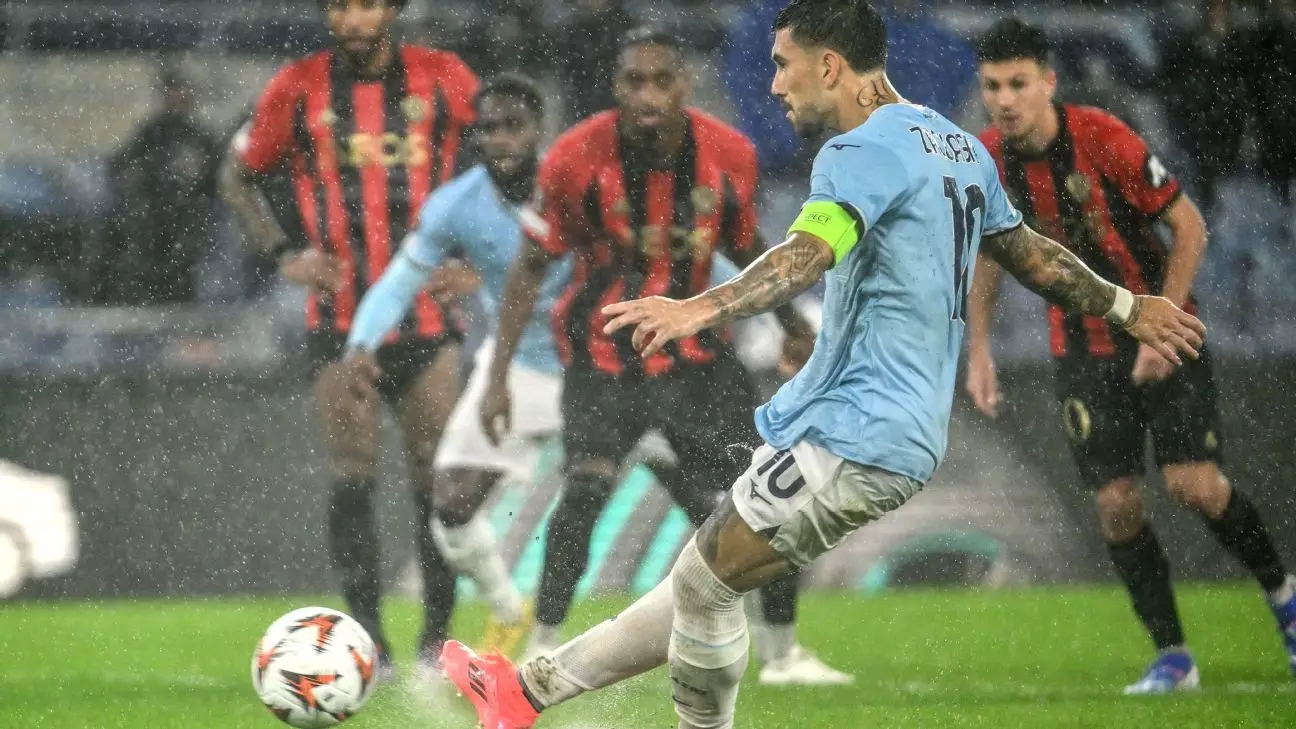In recent times, racism has cast a long shadow over the beautiful game, particularly in European competitions. The recent sanctions imposed by UEFA on clubs such as Lazio and Atlético Madrid bring to light the ongoing struggle against discrimination in football. These punitive measures, stemming from the abhorrent behavior of a minority of fans, highlight both the severity of the offenses and the need for a unified response from governing bodies to address this pervasive issue.
Lazio’s actions—or rather, the actions of a faction of its supporters—are particularly concerning. Following a disturbing display of racism during their Europa League match against Nice, UEFA swiftly moved to shut down two sectors of the Curva Nord for the upcoming match against Porto on November 7. This decision is not merely symbolic but carries real consequences for both the club and its fan base. Additionally, Lazio faced a hefty fine of €45,000, along with a suspended measure that required a partial stadium closure for another match in the future. This probationary period emphasizes that clubs need to be vigilant in their efforts to curb such behavior; failure to do so could lead to more severe repercussions.
Similarly, Atlético Madrid’s recent troubles serve as a wake-up call. The UEFA decision to impose a €30,000 fine, combined with a suspended ban on selling tickets to away fans, signals a growing intolerance towards racial discrimination in football. The infraction occurred during a humiliating 4-0 defeat at Benfica, where Atlético supporters displayed overt discriminatory behavior. Such actions threaten the integrity of the sport and the principle of inclusivity that football champions. UEFA’s measures indicate a commitment to fostering a culture of respect, but the effectiveness of such initiatives rests on the long-term behavior of clubs and their fans.
The Broader Context of Disciplinary Actions
Furthermore, the case of Anderlecht also illustrates how widespread this issue has become. The club faces a ticket-selling ban for away matches due to previous infractions, which further complicates their standing in international competitions. This trend underscores an urgent need for accountability within clubs and the wider football community, where educating fans and promoting positive behavior should be paramount.
The Road Ahead: Education and Responsibility
While financial penalties and bans are important, they are only the beginning. The fight against racism in football necessitates a proactive approach encompassing education, community outreach, and a shared responsibility among players, clubs, and fans alike. The emphasis should be on creating a culture where such behavior is universally condemned and actively challenged.
The recent sanctions against Lazio and Atlético Madrid not only highlight individual club actions but also reflect a larger societal issue that must be addressed. UEFA’s stance is certainly a step in the right direction, yet the real challenge lies in the sustained commitment from all stakeholders to ensure that the beautiful game remains free from the stain of racism. The path toward equality and inclusivity is a collective journey requiring vigilance, dialogue, and a fervent desire for change.

